Affiliate links on Android Authority may earn us a commission. Learn more.
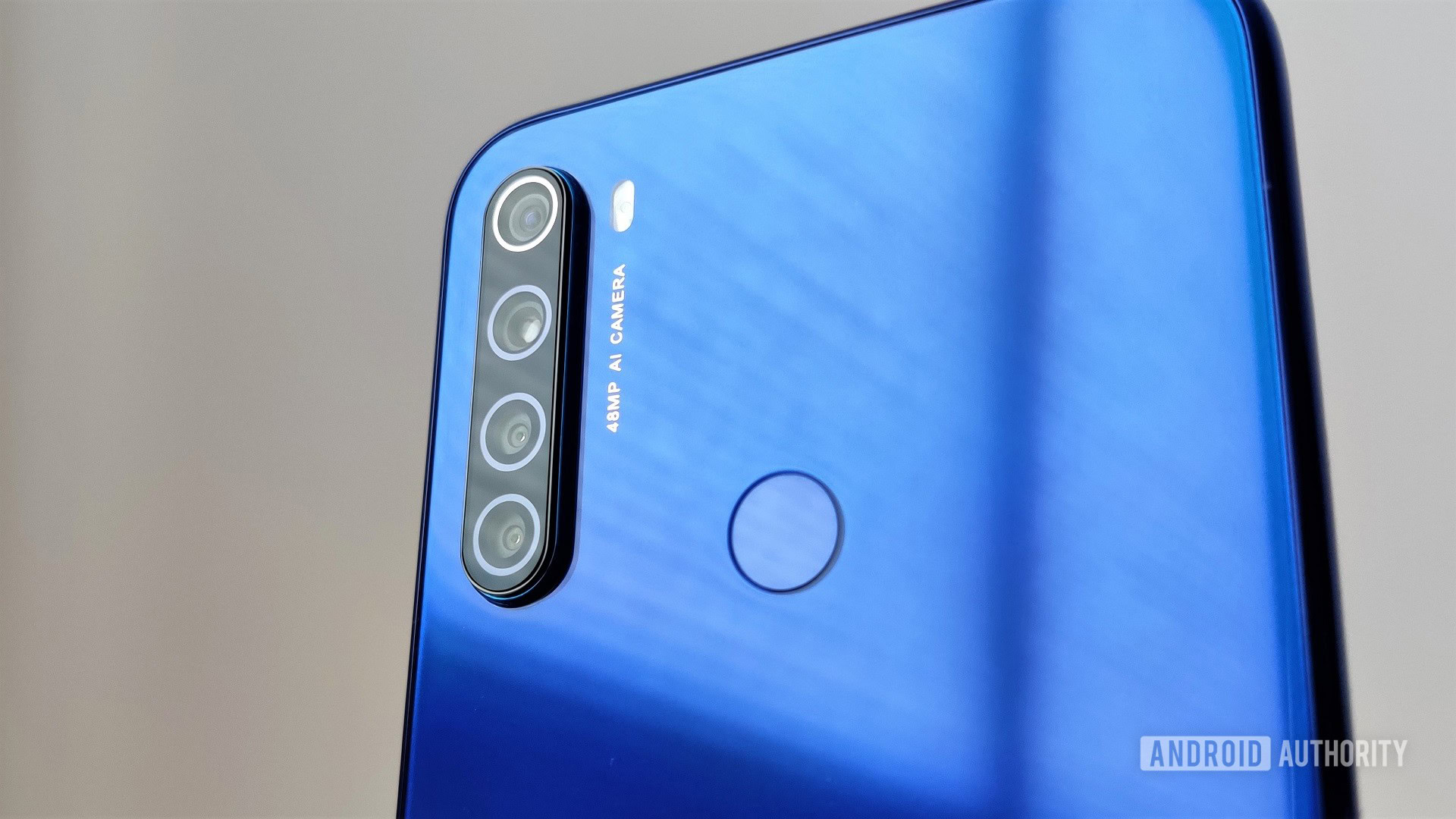
Xiaomi Redmi Note 8T
What we like
What we don't like
Xiaomi Redmi Note 8T
Shortly after the release of the Redmi Note 8 in India, the company released the similar Redmi Note 8T in Europe and the UK. Despite the ‘T’ added to the name, it’s essentially the same device with NFC aboard.
The price is certainly right, but can it hold its own against other budget kings? Find out in Android Authority’s Redmi Note 8T review!
What is the Redmi Note 8T?

The Redmi Note 8T is the latest in Xiaomi’s budget Redmi line, and it delivers solid performance at an attractive price point. Coupled with a quad-camera setup, headphone jack, microSD card slot, great battery life, and fast charging, it’s a welcome addition to the increasingly crowded sub-£200 market.
But what really sets the Redmi Note 8T apart from its competitors is support for NFC. If you’re someone who likes to use Google Pay, the Note 8T is one of very few devices in its price range that supports it.
If you’re not someone who uses NFC there may be better options out there for you, including some from Redmi’s own catalog. For example, the Redmi Note 7 offers similar performance (minus the ultra-wide camera) for less money, and the Redmi Note 7 Pro offers better performance for roughly the same price.
How’s the Redmi Note 8T design?
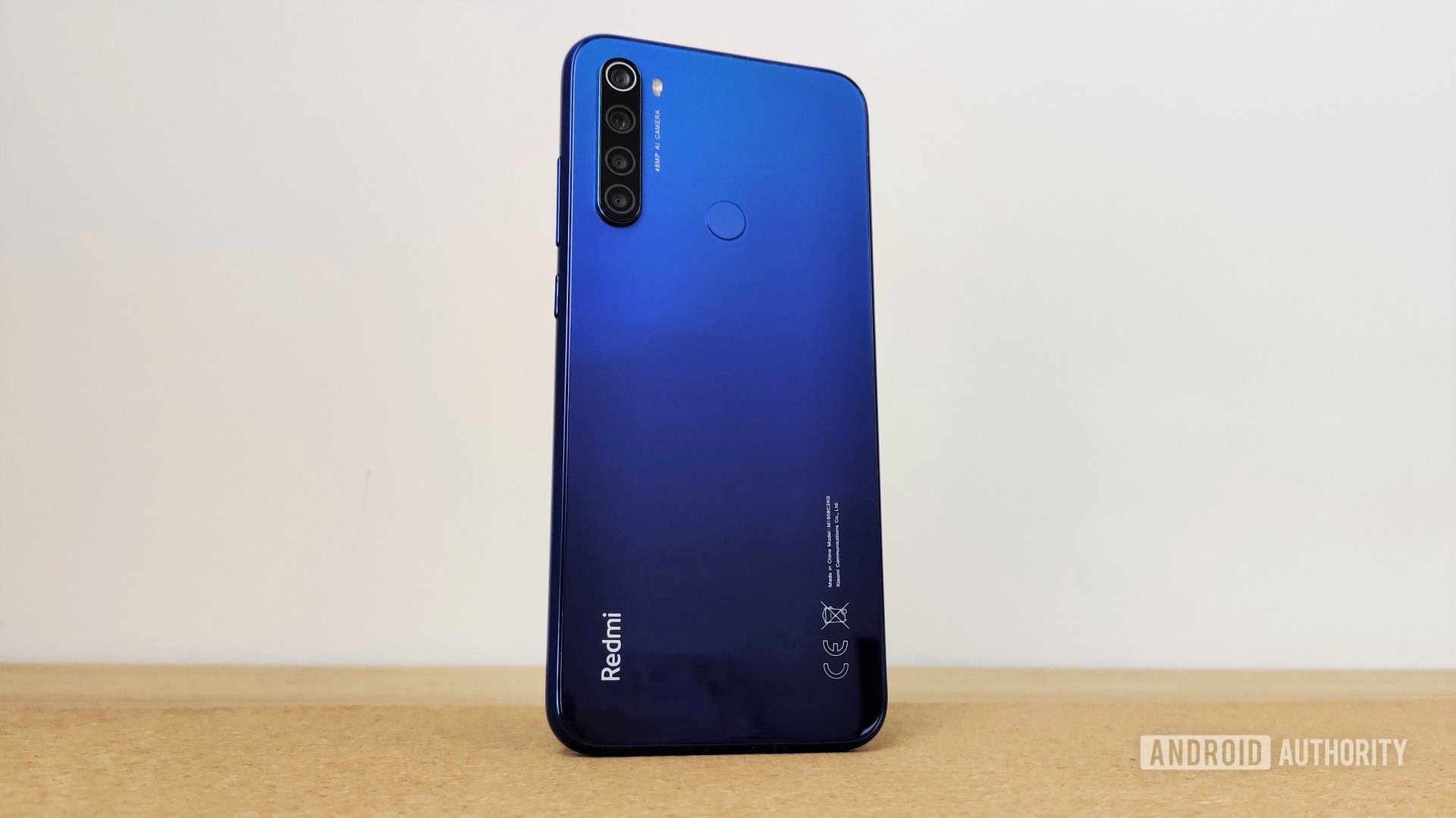
The Redmi Note 8T follows the same design principles of the Redmi Note 7, with a small waterdrop notch and a curvy, glass sandwich. The front and back of device are wrapped in Gorilla Glass 5 and the frame is a soft metal. Combined with the solid power button and volume rockers, the phone feels significantly more premium than perhaps it really is.
My only complaint is that the camera module sticks out way too much, making the device rock significantly when sat flat on a table or catch on your pocket when putting it away. The edges of the module are also fairly sharp, but these problems are solved by applying a case like the TPU option included in the box.
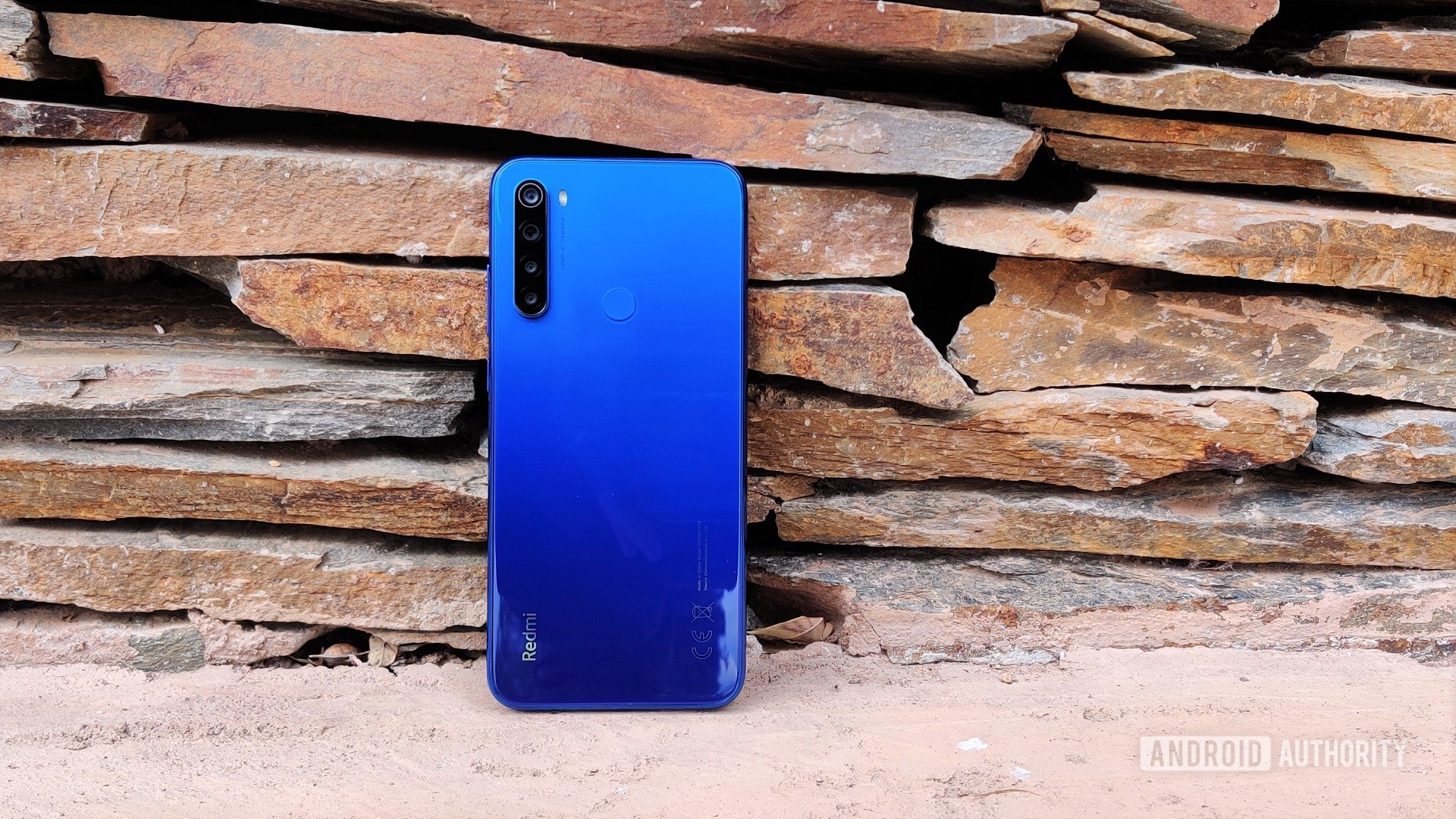
The back of the phone also sports a capacitive fingerprint sensor right in the middle, which is exactly where your finger rests when you pick up the phone. In my testing it was speedy and accurate. Some budget phones include in-screen fingerprint readers, but dedicated sensors are much more reliable in this price range.
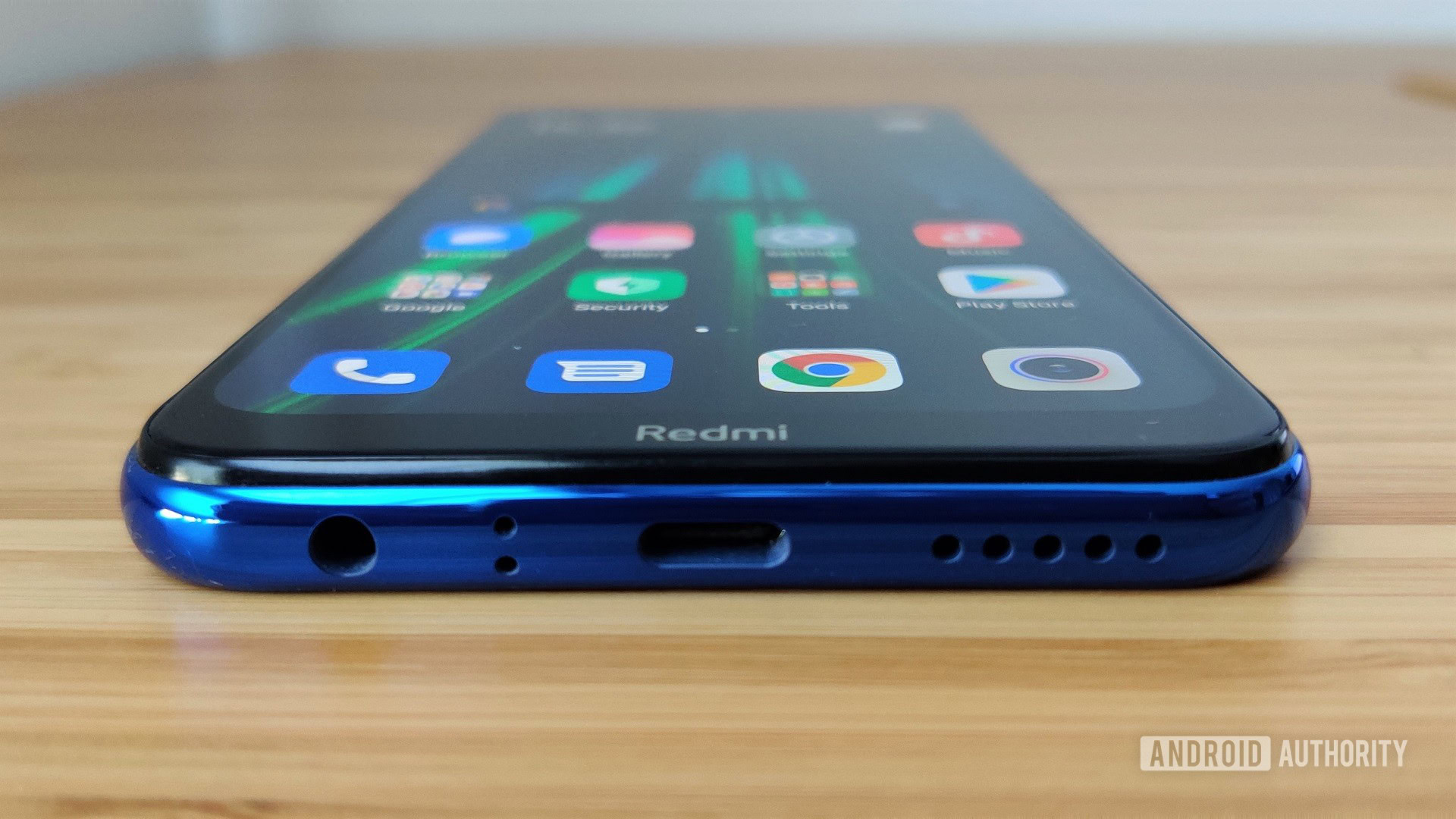
The Redmi Note 8T design doesn’t stand out from other budget or mid-range devices, but the look and feel are good enough to appeal to most buyers. Plus, it has a headphone jack at the bottom of the phone next to the USB-C port and speaker so you won’t need to go shopping for a new pair of Bluetooth headphones.
The color I tested was Starscape Blue, which has a pleasing gradient effect down the phone. It’s also available in Moonlight White and Moonshadow Grey in Europe, although only the blue colorway is available in the UK.
How is the Redmi Note 8T battery?
- 4,000mAh
- 18W fast-charging
- Fast charger included
- No wireless charging
The Redmi Note 8T’s sizeable 4,000mAh battery is capable of lasting all day for everyone but the heaviest users. If you find yourself running low and in a pinch, the 18W rapid charging will take you from 5% to 40% in just 30 minutes. Leave it charging for an hour and you’re looking at 80% — more than enough for a full day of use.
I typically finished the day with well over 30% battery remaining, even after playing an hour or two of Call of Duty Mobile. That said, there are other phones in the same price range with even larger batteries capable of lasting a full two days on a single charge.
How are the Redmi Note 8T cameras?
- Rear cameras:
- 48MP main (Samsung QW1), f/1.8, 08µ pixel size, PDAF
- 8MP ultra-wide, f/2.2
- 2MP macro, f/2.4
- 2MP depth sensor, f/2.4
- Front camera:
- 13MP, f/2.0
- 4K 30fps, Full HD 30/60fps
- Slow-motion 120fps
With an all-new, quad-camera setup, the Redmi Note 8T offers excellent versatility for the price.
The 48MP main shooter is the same component found in the UK version of the Redmi Note 7. Standard shots are binned down from 48MP to 12MP, though you can capture the full 8,000 x 6,000 resolution if you wish. In this setting, you’ll see highly detailed shots that suffer from over-sharpening upon close inspection. Even so, the results are perfect for sharing on social media.
Most of the time you’ll almost always be better off using the standard photo mode, as low-light results are much better and file sizes much smaller. Here’s a quick crop to see the negligible difference between the two modes.
Having the ultra-wide lens option is great, but the macro lens, at just 2MP, leaves something to be desired. In most cases, you’ll get better results with the main camera. It’s also hidden up in the top of the camera app and easy to miss if you’re not looking for it.
For portraits, the Redmi Note 8T relies on its depth sensor in the absence of a dedicated telephoto lens. To be honest, I wasn’t impressed with the results. The phone struggled to differentiate the background from the subject on a few occasions, performing even worse in low-light scenarios. The front-facing camera performs admirably, although the bokeh effect doesn’t always identify edges accurately. If you’re a selfie fanatic, there’s a new panorama selfie mode to capture your whole group of friends, provided they can stand still for a few seconds.
The phone is capable of taking 4K video at 30fps from the main camera, as well as full HD video at 30/60fps. Results are decent for a phone at this price, although video suffers from over-sharpening like the photos.
The camera app is simple and easy to use, although the lower-spec processor is evident when switching between modes or taking processing-intensive night-mode photos. One the plus side, there is a robust pro-mode that lets you take full control of the sensor.
Check out the full resolution Redmi Note 8T photos in this shared Google Drive folder.
Is the software good?
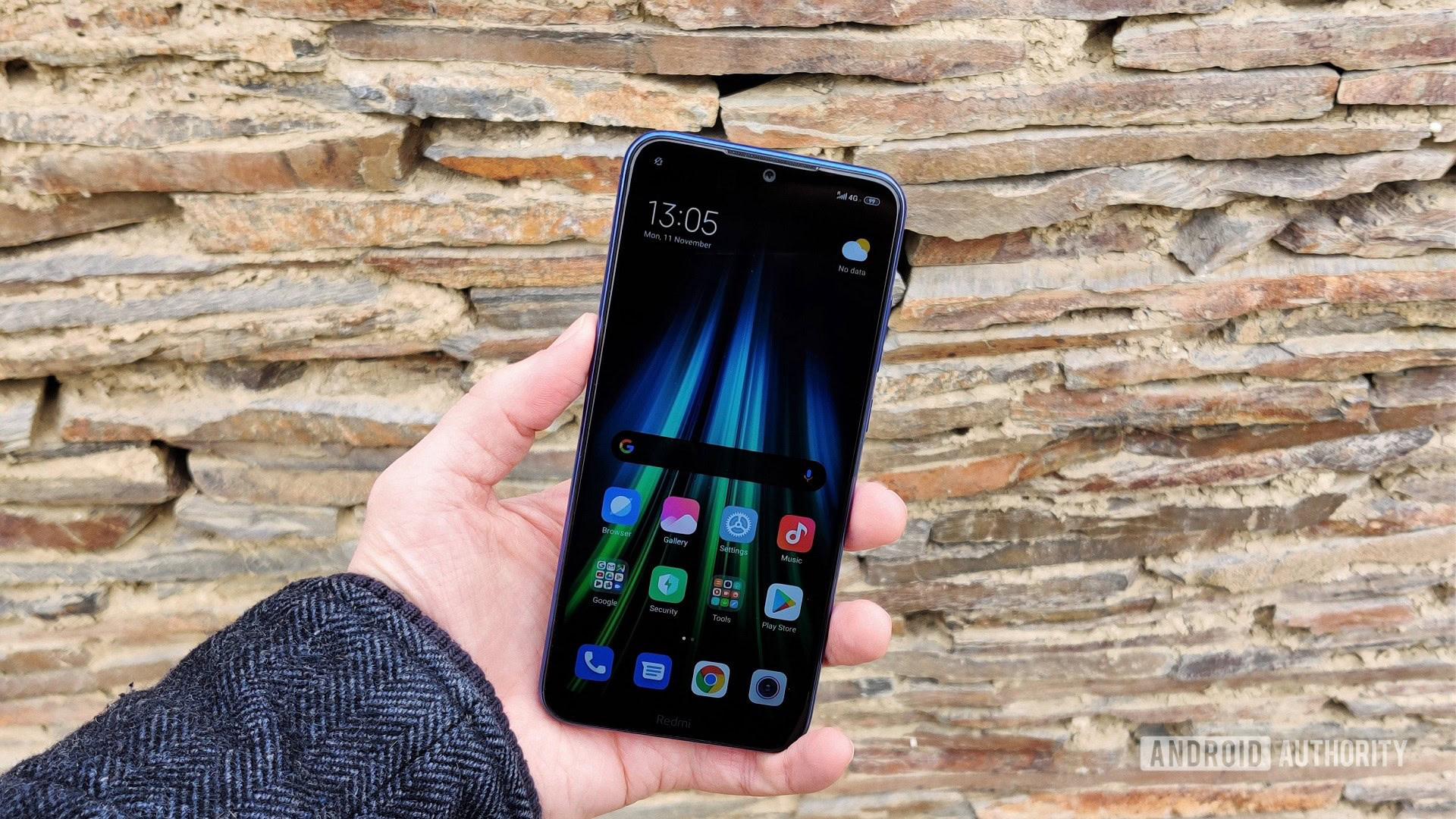
The Redmi Note 8T runs on MIUI 10, which is Xiaomi’s heavily skinned version of Android Pie. If you’ve never used MIUI, it borrows heavily from iOS, with no app drawer and uniform icon shapes for each app.
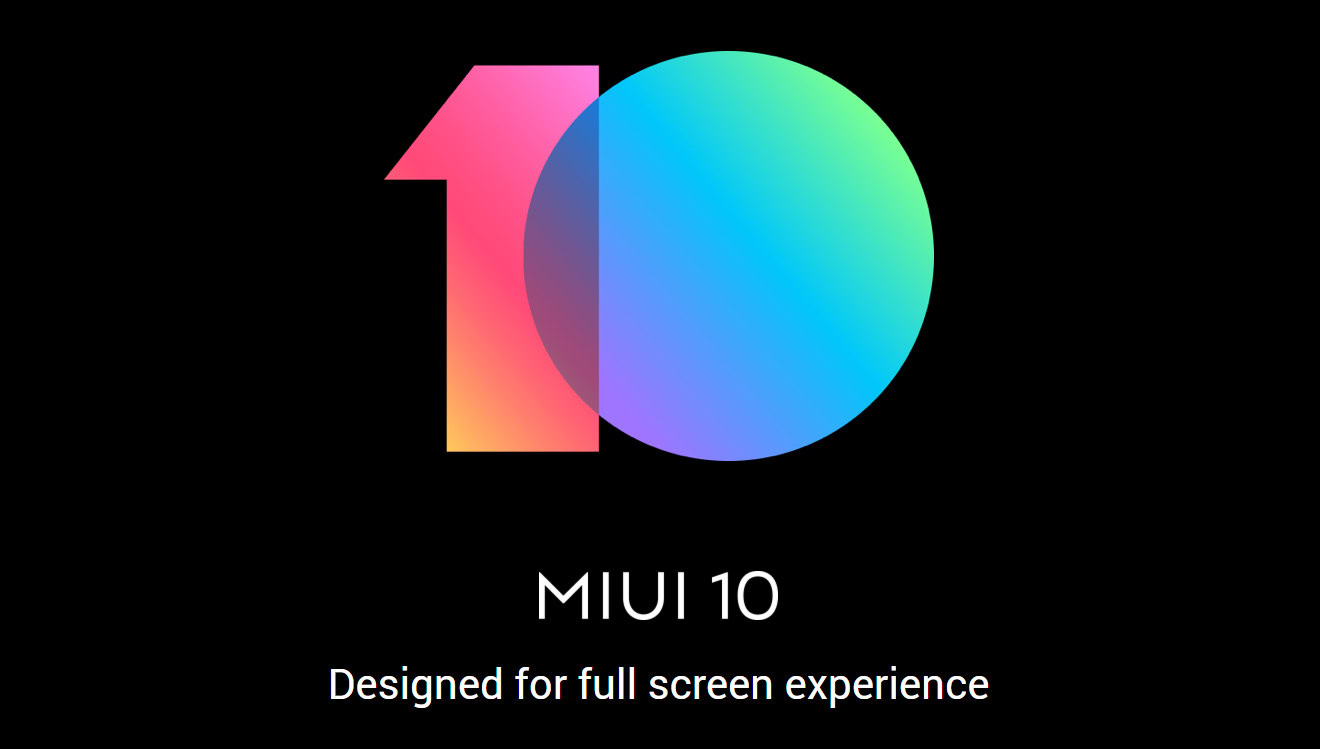
Personally, I don’t mind the overall design aesthetic of MIUI, but I do mind the pre-installed apps and frequent advertisements embedded in the UI. MIUI 11 improves the experience, but at the time of this writing the Redmi Note 8T has not received the latest global version. With the devices predecessor the Redmi Note 7 already on MIUI 11, it shouldn’t be too long before the update hits.
If you’re looking for an Android experience that’s closer to stock, there are a number of options in the same price range that run Android One. If you don’t want to sacrifice camera versatility, the Xiaomi Mi A3 is a great Android One option, although it doesn’t have NFC. The Moto G7 Power has both Android One and NFC, but it only packs a single 12MP camera.
Redmi Note 8T specs
| Redmi Note 8T | |
|---|---|
Display | 6.3 inch IPS LCD 19.5:9 aspect ratio Waterdrop notch Full HD+ (2,340 x 1,080) resolution 88.3% screen-to-body ratio Gorilla Glass 5 |
Chipset | Qualcomm Snapdragon 665 (4x2.0 GHz Kryo 260 Gold & 4x1.8 GHz Kryo 260 Silver) Adreno 610 |
RAM and Storage | 3GB + 32GB 4GB + 64GB 4GB + 128GB microSD expansion up to 256GB |
Cameras | Rear cameras: 48MP main (Samsung QW1), f/1.8, 26mm, 0.8-micron pixel size, PDAF 8MP ultra-wide, f/2.2 2MP macro, f/2.4 2MP depth sensor, f/2.4 4K video at 30fps, Full HD video at 30/60fps and slo-mo at 120fps Front camera: 13MP, f/2.0, 0.9-micron pixel size, Full HD video at 30fps |
Headphone Jack | Yes |
Battery | 4,000mAh 18W charging Quick Charge 4.0 and USB-PD support USB-C |
IP rating | None. Splash-proof nano-coating |
Sensors | Proximity sensor, In-screen ambient light sensor, Accelerometer, Gyroscope, Electronic compass, Vibration motor, IR blaster |
Connectivity | LTE FDD: B1/B2/B3/B4/B5/B7/B8/B20/B28 LTE TDD: B38/B40 WCDMA: B1/B2/B4/B5/B8 GSM: B2/B3/B5/B8 Wi-Fi (2.4GHz and 5GHz): 802.11a/b/g/n/ac Wi-Fi Direct/Wi-Fi Display Bluetooth 5.0 |
SIM | Dual Nano-Sim |
Dimensions and weight | 161.1 x 75.4 x 8.6 mm (6.34 x 2.97 x 0.34 in) 200 g (7.05 oz) |
Colors | Moonshadow Grey, Starscape Blue, and Moonlight White |
Is the Redmi Note 8T worth buying?
- 3GB RAM + 32GB storage: 179€
- 4GB RAM + 64GB storage: 199€ / £169.99
- 4GB RAM + 128GB storage: 249€
Overall, the Redmi Note 8T is one of the best budget devices available in Europe and the UK. Its versatile (if occasionally unreliable) quad-camera setup separates it from the pack, but what ultimately makes it worth purchasing is that coveted NFC support. For those on a tight budget looking to make use of Google Pay, you won’t regret buying the Redmi Note 8T.
If you’re willing to spend a bit more and don’t want to give up NFC, the Samsung Galaxy A50 offers many of the same benefits, as does the Xiaomi Mi 9T. If you don’t plan on using Google Pay, there are better value phones out there, but the Redmi Note 8T still won’t disappoint for the price.
It’s also worth noting that only the 4GB/64GB model is available in the UK, while all three variants are available more widely across Europe. The UK model offers the best value, assuming you make use of the microSD slot. It will be available via Three UK on November 22.